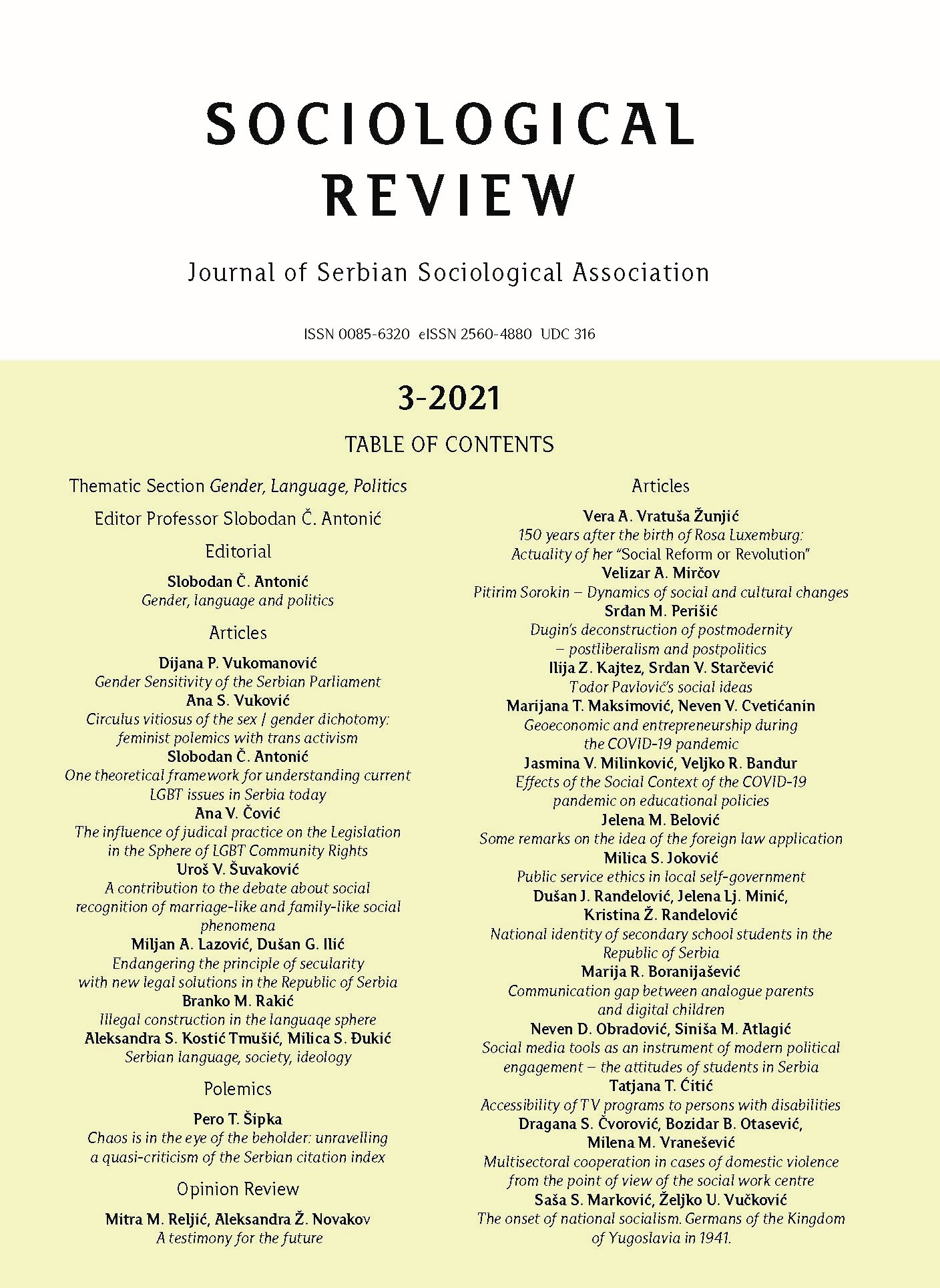A contribution to the debate about social recognition of marriage-like and family-like social phenomena
A contribution to the debate about social recognition of marriage-like and family-like social phenomena
Author(s): Uroš V. ŠuvakovićSubject(s): Social Sciences, Gender Studies, Sociology, Social development, Social differentiation, Social Norms / Social Control
Published by: Српско социолошко друштво
Keywords: marriage;family;homosexual marriage;same-sex union (same-sex life partnership);LBGT movement;LGBT ideology;sociological understanding of concepts;legal position;social engineering;
Summary/Abstract: The paper elaborates on the relation between marriage and the family, on one hand, and marriage-like and family-like homosexual unions such as so-called homosexual marriage and same-sex union (or same-sex life partnership). With a brief theoretical introduction and a comparative overview of the manner in which this matter is regulated in other countries, certain solutions are analyzed from the Proposal Draft Law on Same-Sex Unions of Serbia (2021). It is indicated that it is no longer possible to equalize marriage and the family with the same-sex union because the content of these concepts is substantially different. The society is interested in protecting marriage and the family and to take special care of them since they perform extremely important social functions, whereas without some of them the survival of the society itself would be brought to question (the reproduction function). On the other hand, homosexual marriage and/or same-sex unions do not perform any social function, but are formed exclusively for the purpose of relatively longer-standing satisfaction of sexual needs of same-sex partners. Since the society and the state do not protect marriage only because sexuality is regulated within it, but because it legitimizes sexual relationships aimed at having children, in the event of homosexual marriage-like unions it should also be proceeded in an identical manner: solely those rights and obligations of partners deriving from a relatively longer-standing homosexual partnership should be legally regulated. Moreover, having in mind the principle that every man’s right is limited by other people’s rights, it is impermissible to give priority to the protection of the rights of same-sex partners for the purpose of longer-standing homosexual relationships over the protection of children’s rights. Children need both a father and a mother (an ideal condition), and the family in which they will be socialized. In line with those homosexual marriage-like unions, neither adoption nor assisted insemination can be allowed.
Journal: Социолошки преглед
- Issue Year: 55/2021
- Issue No: 3
- Page Range: 714-750
- Page Count: 37
- Language: English, Serbian

